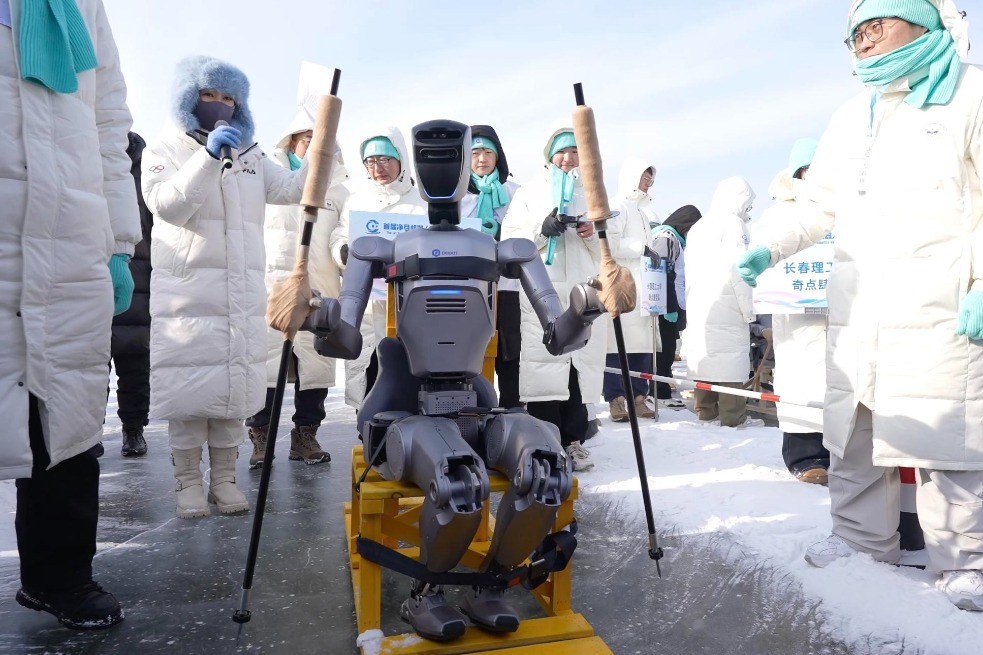IN BRIEF (Page 3)

Problems of aged linked to lifestyle
More than half of China's elderly have health problems, and their lifestyles are believed to be a leading contributor, officials and medical experts say.
China's population is rapidly aging and the number of citizens older than 60 is expected to reach 202 million by the end of this year, including 23 million older than 80, said Wu Yushao, vice-president of the China National Committee on Aging.
By then, 37.5 million elderly Chinese, or 19 percent of the senior population, will require daily care because of disabilities.
Only about 40 percent of Chinese people over 60 are considered healthy, compared with 60 percent in developed economies, Wu said, citing 2008 statistics from the World Health Organization.
Tao Guoshu, a retired doctor from the Chinese PLA General Hospital who specialized in geriatrics in Beijing, said cardiovascular disease, cancer and cerebrovascular disease are common among elderly Chinese patients, and about 60 percent of health issues were triggered by unhealthy lifestyles.
Youth ignorant on matters of sex
As China reported at least 13 million abortions each year on the mainland, family planning officials called for strengthened sexual health and contraception education, particularly among those aged 15 to 24.
In the latest reproductive health survey among China's young people, more than 22 percent of the 22,000 respondents reported having had premarital sex.
Half of them took no contraceptive measures when they first had sex, according to the survey conducted by the National Working Committee on Children and Women under the State Council.
Notably, 21.3 percent of the females said they had an unwanted pregnancy, and 91 percent of those sought abortions. Nearly 19 percent of those who had abortions said they later had more. Mo Lixia, deputy director of the family development department under the National Health and Family Planning Commission, said a top priority will be put on reproductive health education for young people, such as college students.
She called on schools, universities and communities to help improve young people's knowledge of safe sex.
Science
Citations demonstratetechnological prowess
China became one of the world's top five countries that have the highest total citation of scientific and technology papers.
On Sept 27, the Institute of Scientific and Technical Information of China published its latest report on the performance of Chinese science and technology papers, with data updated last month.
Since 1987, the annual report has been a source of decision-making support for government agencies.
The report, the Statistical Data of Chinese S&T Papers, showed Chinese researchers have published 1.14 million international science and technology papers since 2003, ranking second in the world. These papers had total citations of nearly 7.1 million times, ranking it fifth, moving up one place from last year.
"In the country's science and technology development plan during the 12th Five-Year Plan (2011-15), we set the goal of entering the top five countries for paper citation by 2015," said He Defang, director of the Institute of Scientific and Technical Information of China.
China Daily
| Chinese President Xi Jinping, second from left, and his wife Peng Liyuan, left, pose with Indonesian President Susilo Bambang Yudhoyono, second from right, and his wife Ani for photographers before a meeting at Merdeka Palace in Jakarta, Indonesia, on Oct 2. Xi is making state visits to Indonesia and Malaysia, and will attend the APEC's 21st informal economic leaders' meeting on Oct 7 to 8 in Indonesia's resort island of Bali. Achmad Ibrahim / AP |
(China Daily Africa Weekly 10/04/2013 page3)
Today's Top News
- Xi's speech at Central Urban Work Conference to be published
- China completes over 8 million hectares of land greening in 2025
- FTZ helps Kashgar invigorate regional commerce
- Canada, China should eye a fresh start
- US playing with fire on thin Arctic ice
- Party conduct key to clean governance































